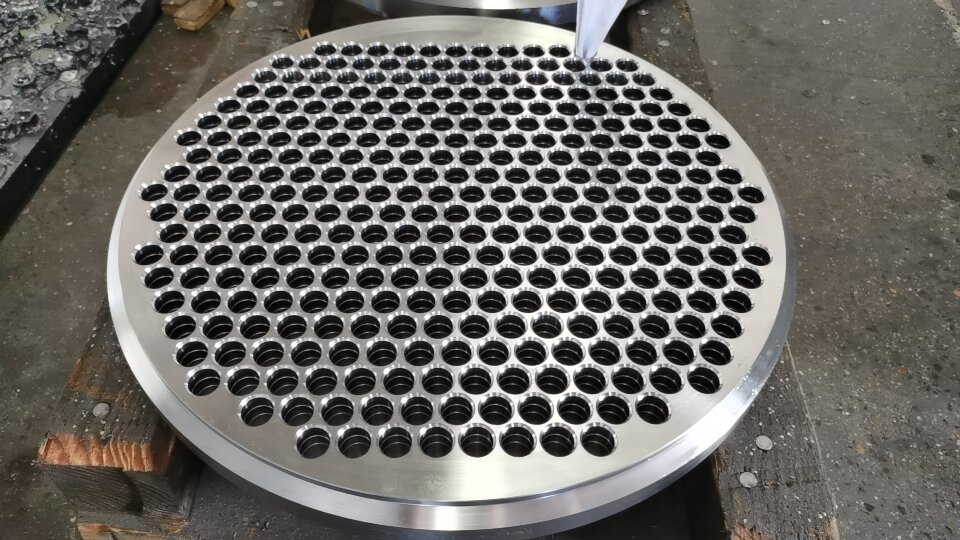Composite Titanium-Steel Tube Sheet
Titanium Steel Composite Plates
What is a Titanium Steel Composite Plate?
A titanium steel composite plate is a high-performance material manufactured by bonding titanium and steel plates through advanced processes such as explosive bonding or hot rolling. Explosive bonding utilizes high-pressure shock waves to create a metallurgical bond between the two metals, while hot rolling achieves a strong, uniform bond by applying heat and mechanical pressure.
Why Use Titanium Steel Composite Plates?
Titanium is widely used in chemical reaction vessels, heat exchangers, and corrosive environments due to its exceptional corrosion resistance. However, its high cost makes it impractical for large-scale structural applications. Titanium steel composite plates solve this problem by combining titaniums corrosion resistance with steels structural strength and affordability, significantly reducing material costs while maintaining performance.
Technical Parameters of Titanium Steel Clad Tube Sheets
Steel
Titanium
0.3mm – 15mm
>4mm
Blasted, blasted-rolled, rolled
Advantages of Titanium Steel Composite Tube Sheets
Superior Corrosion Resistance
Titanium naturally forms a dense oxide film when exposed to oxygen, providing excellent protection against acids, alkalis, salt solutions, and chloride ion environments.
Cost Efficiency
The titanium layer provides corrosion resistance, while the steel substrate offers structural support at a lower cost. Reduces expenses by 35–50% compared to pure titanium.
Lightweight Design
Titanium has a lower density than steel, making composite plates lighter than solid steel plates of the same dimensions.
High-Temperature & Pressure Stability
The composite structure maintains excellent mechanical strength and thermal stability for demanding industrial environments.
Applications of Titanium Steel Composite Plates
Titanium steel composite plates are widely used in industries requiring corrosion resistance, structural integrity, and cost efficiency.
Petrochemical Industry
Concentration towers, reactors, heat exchangers, pressure vessels, condensers, and shell-and-tube heat exchangers.
Power Generation & Desalination
Condensers in power plants and heat exchangers in seawater desalination systems.
Salt Production Equipment
Evaporator shells resistant to salt scale buildup, chloride solution handling systems.
Metallurgical Engineering
Reactors for wet pressure acid leaching, processing of cobalt-nickel sulfide concentrates.
Emerging Applications
Wastewater treatment systems, marine and offshore engineering applications.

Titanium Clad Steel Tubesheet in industrial heat exchanger application
Titanium steel composite plates
Titanium steel composite plates offer an optimal balance of performance and cost, combining titaniums corrosion resistance with steels strength and affordability. Their lightweight, durable, and cost-effective nature makes them indispensable in industries ranging from petrochemicals to power generation and marine engineering.
As technology advances, these composite materials continue to find new applications where corrosion resistance and structural integrity are paramount, providing innovative solutions for challenging industrial environments.

